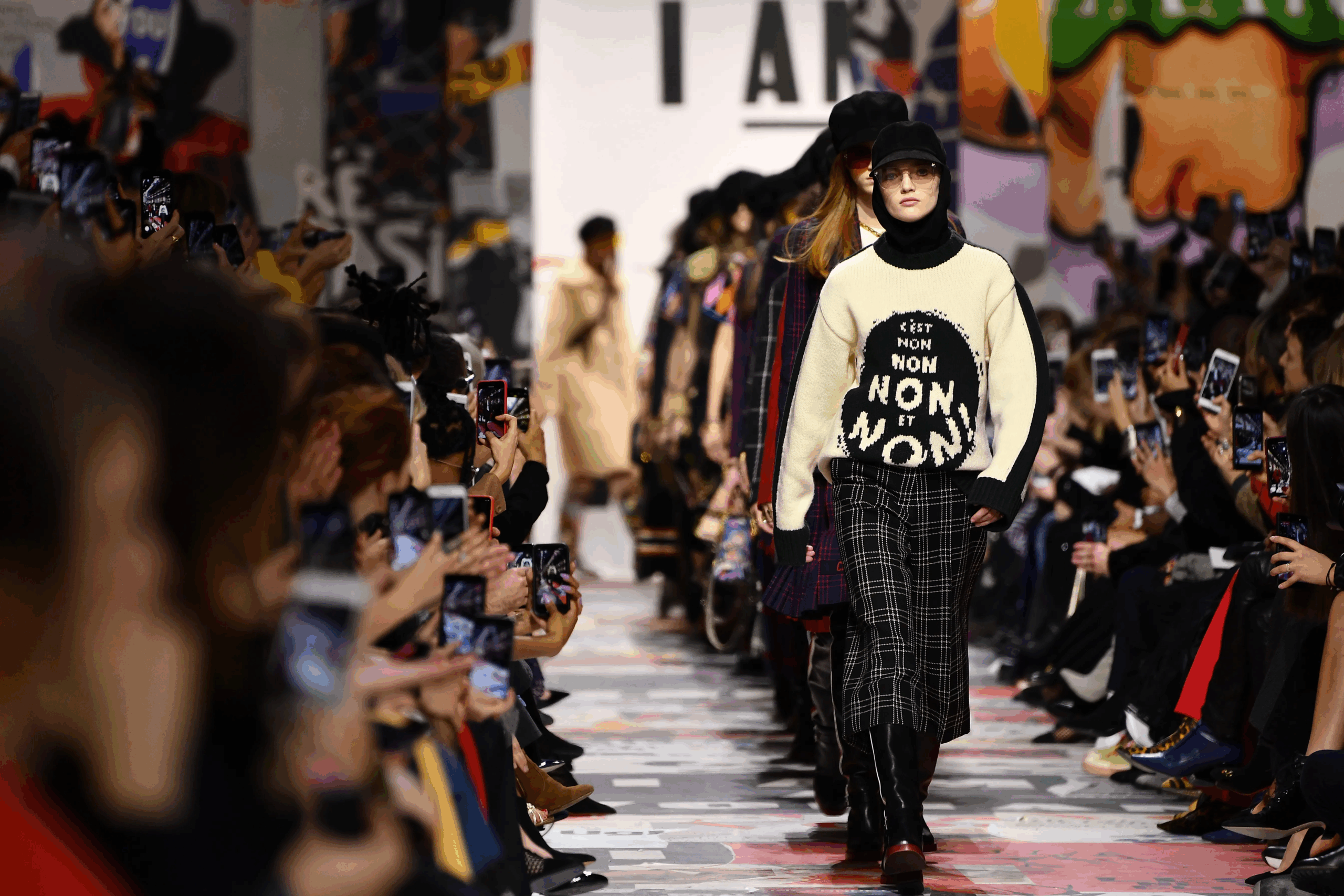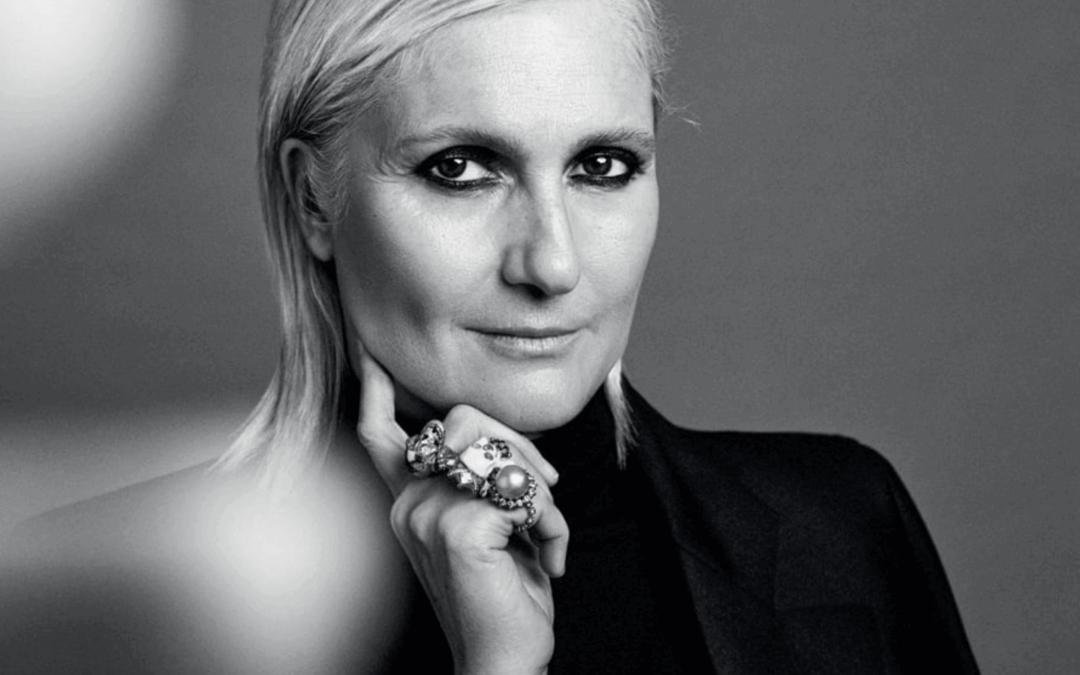
LUXE PARADOX
We explore the intersection of style, accessibility, and social dynamics, driving discourse on the evolving landscape of luxury and the fashion system.
The Feminist Philosophy of Dior Through the Eyes of Maria Grazia Chiuri
by Thea Elle | August 2, 2025 | Style Guide
When Maria Grazia Chiuri took on the role of DIOR’s first female creative director in 2016, she didn’t just redefine women’s fashion—she transformed how the brand connected with them. Her designs included empowering messages, flowing goddess-like shapes, and strong feminist imagery. While Chiuri became the face of this movement, much of the deeper messaging came from someone less visible: her daughter, Rachele Regini.
Though she kept a low profile, Regini served as DIOR’s cultural advisor, playing a crucial role. With a background in gender studies and a keen sense for cultural nuance, she helped guide the brand’s more meaningful partnerships and feminist storytelling. Now that Chiuri is leaving, the real question is whether anyone will carry on the shared legacy she and Regini created.

More Than a Designer: Chiuri’s Feminist Legacy at DIOR
Maria Grazia Chiuri didn’t just make history as the first woman to lead DIOR’s creative direction — she redefined what fashion could say. Raised in Rome by a seamstress mother, Chiuri’s path to the runway began early. After graduating from the Istituto Europeo di Design, she helped shape iconic fashion moments at FENDI with the Baguette bag and co-led a romantic renaissance at Valentino. But when she joined DIOR in 2016, her mission shifted: it was no longer just about designing clothes, but about giving them a voice. Her debut featured models in “We Should All Be Feminists” T-shirts — a statement that fashion could, and should, speak up.
Chiuri’s work fused fashion with feminism, drawing on inspiration from female creatives and thinkers. Her collections often stirred debate — seen by some as performative, hailed by others as powerful — but that was the point. She wasn’t seeking consensus; she was demanding conversation. Behind the scenes, her daughter Rachele Regini — DIOR’s cultural advisor — played a pivotal role, helping shape the house’s deeper ideological shifts.
If you’re a luxury brand enthusiast on a budget, check out CRIS & COCO! You will only find better deals, with up to 90% off on authentic, high-quality products. Trust our quality satisfaction guarantee and 99 % satisfied customers since 2018 speak for themselves. Take advantage of this hidden gem!

The T-Shirt That Sparked a Global Conversation
Maria Grazia Chiuri’s debut at DIOR wasn’t just about introducing a fresh aesthetic — it was about declaring a perspective. In her Spring/Summer 2017 runway show, alongside structured fencing jackets and delicate skirts, one item stood out: a plain white T-shirt boldly emblazoned with “We Should All Be Feminists,” a quote from author Chimamanda Ngozi Adichie. Far from a fashion gimmick, it became a statement — and a rare instance of a luxury brand using its platform to champion ideology over irony.
Reactions were mixed. Some praised the move as revolutionary, others dismissed it as performative branding. But Chiuri remained unfazed. Her mission was clear: use fashion to provoke thought and ignite dialogue. The shirt quickly sold out, and DIOR suddenly found itself at the center of a broader cultural reckoning. In a world where many labels were flirting with feminist language, Chiuri turned the message into a literal, wearable moment.
SHOP CRIS & COCO HERE

Where Fashion Became Feminist Architecture
If Chiuri’s slogan T-shirt opened the door to feminist dialogue, her Spring 2020 couture show flung it wide open. Collaborating with iconic feminist artist Judy Chicago, Chiuri transformed DIOR’s runway into an immersive experience inside the Musée Rodin. Instead of a traditional tent, guests entered a monumental, womb-like structure adorned with embroidered banners posing provocative questions like “What if women ruled the world?” It wasn’t subtle — and it wasn’t meant to be.
Models floated through the space in ethereal goddess gowns and structured silks, more like modern deities than runway fixtures. But the true statement was in the setting itself: Chiuri used fashion not just for style, but for social interrogation. In an industry where feminist themes are often reduced to trendy catchphrases, this show stood apart — ambitious, thoughtful, and confrontational. It was couture as consciousness, and it left audiences reflecting not on fabrics, but on systems.
Redefining the House: Chiuri and Regini’s Lasting Impact
What set Maria Grazia Chiuri’s feminist approach at DIOR apart was its permanence. This wasn’t a seasonal gimmick — it was a total rethinking of the brand’s DNA. Show after show, Chiuri reinforced the idea that intelligence and elegance could coexist. Under her leadership, DIOR evolved from a fashion label into a cultural voice, one that questioned long-standing norms about who fashion serves and what it can express.
Helping shape this vision was her daughter, Rachele Regini, whose academic lens gave DIOR’s feminism substance and depth. Their partnership — one creative, one cerebral — quietly shifted the industry’s narrative. While other brands dipped a toe into empowerment, DIOR fully embraced it. Not every campaign was universally praised, but the message was undeniable: this was no longer fashion for the male gaze — it was fashion for women, by women, and about women.

Feminine Strength in Casual Elegance
What Becomes of a Feminist Legacy Without Its Architect?
With Maria Grazia Chiuri stepping away from DIOR, the pressing question isn’t just about her replacement — it’s about whether the brand will retain the vision she championed. Critics may have debated her literal use of feminist themes, but Chiuri gave DIOR more than runway moments — she gave it a soul. She redefined what power dressing could look like and made intelligence part of the brand’s visual language. She proved a fashion house could take a stance — even an uncomfortable one — and still thrive.
Speculation now swirls about her next move. Will she launch her own brand? Reunite with Valentino? Or chart a completely new course? And what of Rachele Regini, the intellectual engine behind many of DIOR’s feminist narratives? Her influence is far from over, even if her next step doesn’t lie in fashion design. For DIOR, the real test begins now: will it honor the feminist foundation Chiuri laid, or retreat into safer, trendier territory? Either way, the standard has changed — and so has the runway.
The Final Thread
Chiuri didn’t just design garments — she delivered a manifesto. She showed that fashion can have values without sacrificing elegance, that femininity can be fierce and self-authored. With Regini shaping the conversation, DIOR became not just a label, but a lens through which power, identity, and womanhood were reimagined. Now, as the fashion world awaits DIOR’s next chapter, one thing is certain: Chiuri’s message wasn’t a whisper — it was stitched into the seams. Whether others will continue the dialogue remains to be seen.
